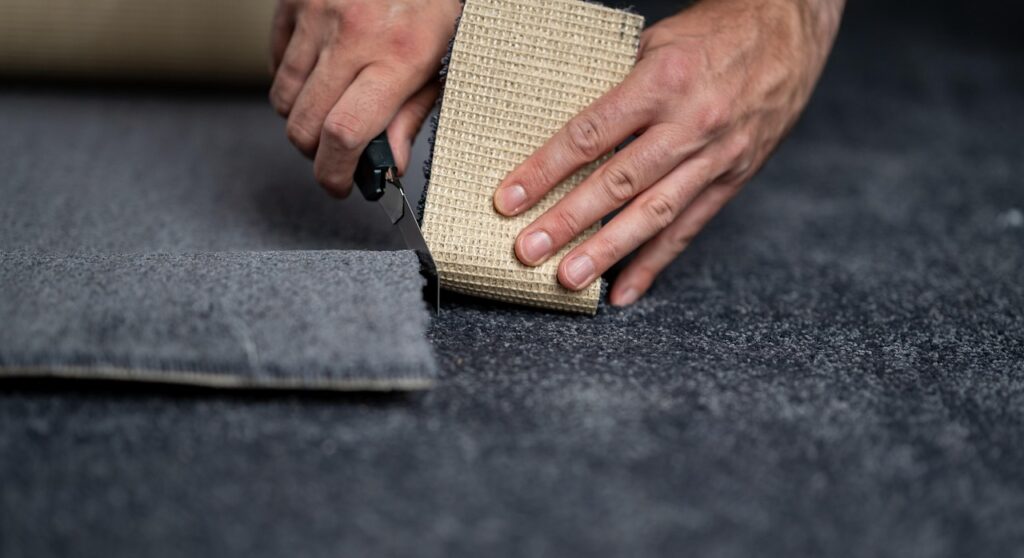Finding a reliable carpet and flooring store near you is essential for quality materials and professional service. Many local stores offer a wide range of options, from hardwood and laminate to carpet and tile, allowing customers to see and feel products before buying.
The best way to locate a suitable store nearby is by searching online reviews, checking product selections, and visiting locations to assess expertise and customer support. This approach helps ensure the store meets both budget and style needs.
Shoppers benefit from stores that provide installation services and expert advice, making the flooring process smoother and more efficient. Knowing what each store offers can save time and lead to a better flooring choice.
Choosing the Best Carpet and Flooring Store Near Me
Selecting the right carpet and flooring store involves evaluating several key factors, comparing the available local options, and preparing effectively for showroom visits. These steps help ensure a practical purchase that suits budget, style, and durability needs.
Factors to Consider When Selecting a Store
The reputation of the store is critical. Customers should check online reviews and seek recommendations from friends or family to gauge customer service and product quality.
Inventory variety matters. A good store will offer multiple flooring types, such as carpet, hardwood, laminate, and vinyl, to provide options for different rooms and requirements.
Pricing transparency is essential. Stores that clearly display prices and fees avoid surprises. Also, understanding return policies and warranties helps prevent future issues.
Location and delivery options are practical concerns. A nearby store with flexible delivery or installation services reduces hassle.
Comparing Local Carpet and Flooring Options
Price comparisons should include materials, installation, and additional fees. Some stores bundle these for simplicity, while others list them separately.
Checking product origin and durability ratings helps match materials to intended use. For example, high-traffic areas may need tougher carpets or scratch-resistant flooring.
Store promotions and ongoing sales can offer significant savings but should be balanced with quality. Buying cheaply is not advantageous if the product wears out quickly.
Customer support varies—some stores provide free consultations or sample deliveries, which can influence the decision for convenience and confidence.
Tips for Visiting a Carpet and Flooring Showroom
Visitors should wear comfortable shoes and bring a list of room dimensions to ensure correct measurements.
Asking specific questions about maintenance, lifespan, and installation times clarifies expectations and avoids misunderstandings.
Requesting samples to take home allows them to see floor appearance in different lighting.
Noting store policies on returns, exchanges, and handling damaged goods is wise before finalizing a purchase.
Taking photos of preferred options helps compare choices later without relying solely on memory.
Types of Flooring and Carpet Solutions
Carpet and flooring stores typically offer a wide range of options suited for different needs, styles, and budgets. Buyers can expect choices in texture, durability, and environmental impact depending on the material or carpet style.
Varieties of Carpeting Available
Carpet options include materials such as nylon, polyester, olefin, and wool. Nylon is durable and stain-resistant, ideal for high-traffic areas. Polyester offers vibrant colors but is less resilient to heavy wear.
Loop pile and cut pile are common carpet constructions. Loop pile carpets are durable and resist crushing, while cut pile carpets provide softness and a plush feel. Patterned and textured carpets add visual interest.
Carpet padding is also important. It enhances comfort, insulates against noise, and extends carpet life. Options vary in thickness and density to suit different rooms.
Popular Flooring Materials and Finishes
Hard flooring materials include hardwood, laminate, vinyl, tile, and stone. Hardwood offers classic appeal with natural grain patterns. Laminate mimics wood at a lower price point and is scratch-resistant.
Vinyl flooring is water-resistant and versatile, suitable for kitchens and bathrooms. Tile and stone are durable, available in numerous colors and textures, and excellent for high-moisture areas.
Finishes affect floor appearance and maintenance. Matte finishes hide scratches better, while glossy finishes offer a polished look but show wear faster.
Eco-Friendly and Sustainable Choices
Sustainable flooring options focus on renewable and low-impact materials. Bamboo grows rapidly and is strong, making it a popular eco-friendly hardwood alternative. Cork is renewable, soft underfoot, and provides good insulation.
Recycled materials appear in carpets made from reclaimed fibers or plastics. Low-VOC (volatile organic compound) finishes reduce indoor air pollution.
Stores increasingly stock products certified by organizations like GreenGuard or Forest Stewardship Council (FSC), ensuring environmental standards are met.
